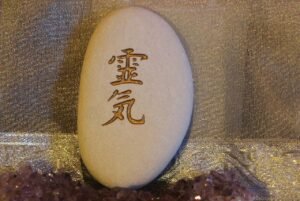Traditional Chinese Medicine
Traditional Chinese medicine ( TCM ) or traditional Chinese medicine ( TCM ), also known simply as Chinese medicine (in traditional Chinese ,中醫; in simplified Chinese ,中医; pinyin , zhōngyī ) or traditional Oriental medicine, is the name commonly given to a range of traditional medical practices and superstitions developed in China throughout its millennia-long cultural evolution. The main medical theoretical foundations of traditional Chinese medicine are based on this long experience, and this is reflected in the yin-yang theory and others, such as the doctrine of the five elements.
Treatments are given with reference to this philosophical framework, but often, as the WHO warned in its time, these treatments lack a scientific basis, as is the case with those based on rhinoceros horns, saiga horns, or tiger bones, which have their origin in superstitions associated with animals with a strong symbolic charge due to their size or ferocity, and which are driving several species of the planet to extinction.
Traditional Chinese medicine is based on the concept of balanced chi (or vital energy ), which is believed to flow through a person’s body. Practitioners of this medicine propose that chi regulates spiritual, emotional, mental and physical balance and is affected by the opposing forces of yin (negative energy) and yang (positive energy). According to traditional Chinese medicine, illness occurs when the flow of chi is disturbed and an imbalance of yin and yang occurs. Components of this type of medicine include herbal and diet therapy, physical exercise, meditation, acupuncture, and restorative massage.
It is considered one of the oldest forms of oriental medicine, a term that also encompasses other Asian medicines, such as the traditional medical systems of Japan, Korea, Tibet, and Mongolia.
Its philosophical basis is the observation and knowledge of the laws that govern the functioning of the human body and its interaction with the environment, following the cycles of nature; seeking to apply this understanding to the treatment of disease and the maintenance of health with various methods.
Currently, traditional Chinese medicine has incorporated into its practice various techniques and theories of evidence-based medicine, especially those types of diagnostic tests without invasive characteristics.
Source: Wikipedia

How does Reiki work, and what is the exact method?
The method of Reiki relies heavily on a practitioner’s intuition regarding what they believe their client needs. So, in other words, there is no strict protocol when it comes to performing Reiki. “It depends on how my client enters the room— if they are super anxious, I’ll start at their feet to ground them and

5 Health benefits of reiki
Relieves pain, anxiety, and fatigueAccording to a review of randomized trials, reiki may help to reduce pain and anxiety, though more research is needed. It may also help to reduce fatigue.A 2015 study found that people being treated for cancer who received distant reiki in addition to regular medical care had lower levels of pain,

What is Reiki?
Although energy work and reiki is considered quiet popular many people still don’t know what it is…It’s like describing the sun to someone who has only ever lived in a cave. Words just won’t do it but take them out to the sunshine and there you have it – they feel that warmth and glow


